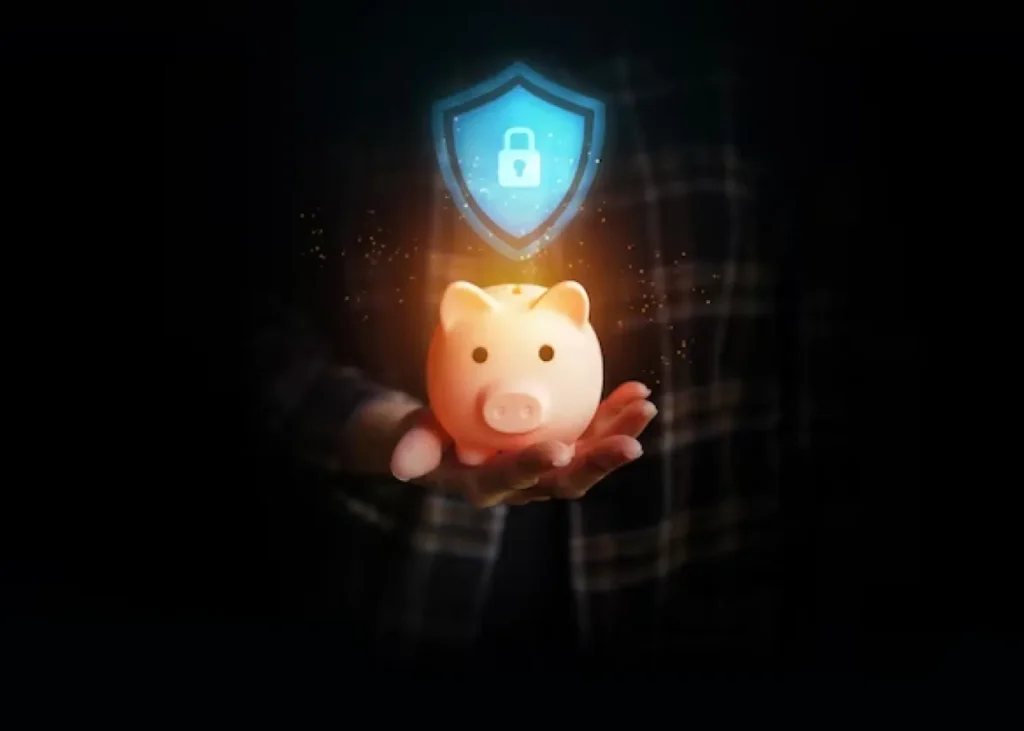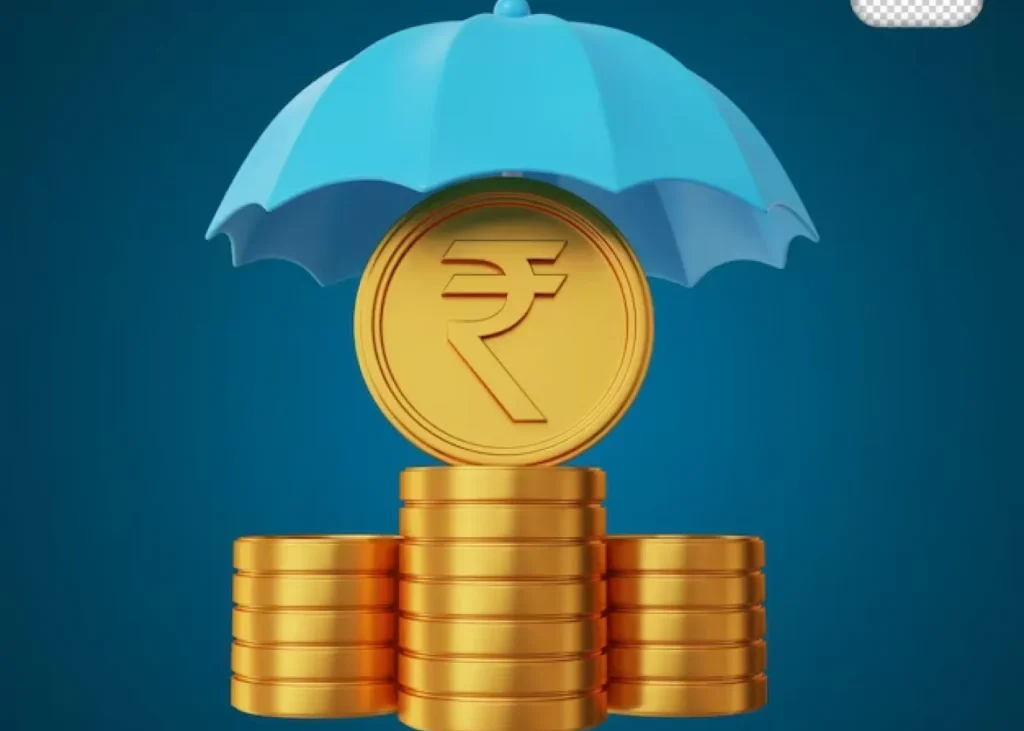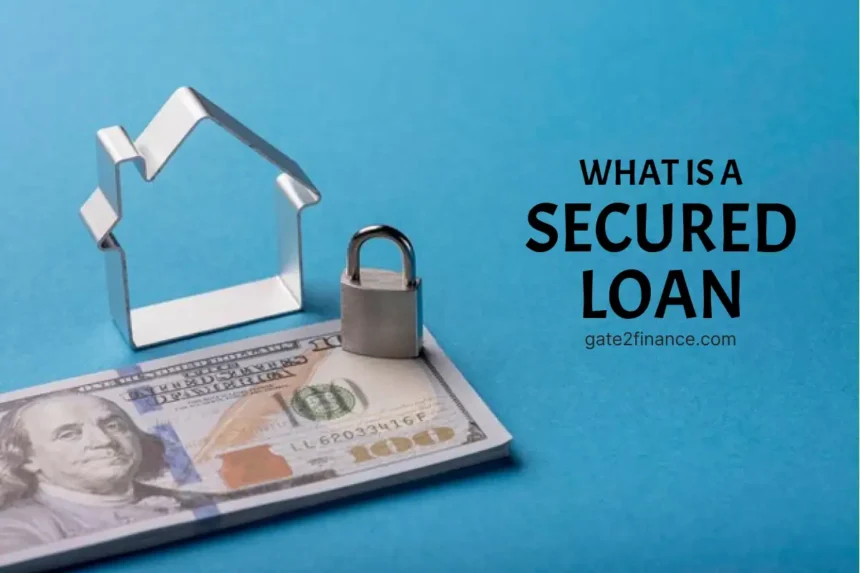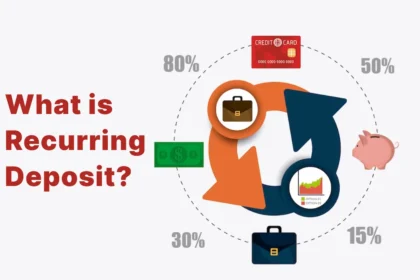What Are Secured Loans ?
A secured loan is one in which the applicant pledges an asset as collateral for the loan, which becomes a secured debt owing to the creditor who makes the loan. The debt is thus guaranteed against the a security interest, and if the borrower defaults, the creditor seizes the collateral asset and may sell it to recoup some or all of the sum initially loaned to the debtor. Foreclosure on a home is one example. From the standpoint of the creditor, that is a type of loan in which the borrower has been awarded a share of the bundle of rights to specified property. If the proceeds from the sale of the security are insufficient for paying off the debt in full, the lender can frequently obtain a deficiency judgement against the debtor for the amount that remains.
Unsecured debt is the inverse of secured debt/loan, as it is not tied to any particular item of property. Instead of the customer’s collateral and the borrower, the creditor may just satisfy the debt against the borrower. Because of the extra security for the lender, secured loan may attract lower rates of interest than unsecured debt; however, the risk of credit and expected profits for the financial institution are also variables influencing rates.The word secured loan has usage in the United Kingdom, whereas secured debt is more generally used in the United States.
Understanding Secured Loans
Loans, whether personal or company loans, can be guaranteed or unsecured. To acquire a loan with no collateral no collateral of any type is necessary. Instead, you can borrow based on the reliability of your credit score and financial history.Secured loans, on the opposite hand, necessitate the use of collateral in order to borrow. In certain situations, the guarantee for a loan with security may be something that is purchased with the funds. When you get a mortgage, for example, the loan is protected by the real estate you’re buying. The same is true for a car loan.
If you fail on the loan, which means you stop making settlements, the lender has the right to confiscate the collateral used to secure the loan. In the case of a mortgage loan, for example, the lender could launch a foreclosure procedure. The property would be sold off, and the proceeds would be used for paying off the unpaid mortgage.
Secured loans are those that are backed by a specific type of collateral, such as real estate or automobiles, or assets that are liquid, such as cash.Personal loans and company loans can both be secured, albeit the latter may additionally demand a personal guarantee.Qualified applicants can obtain secured business and personal loans from credit unions, banks, and online lenders.Depending on the lender, rates of interest, fees, and conditions of lending for secured loans can vary greatly.
How Does a Secured Loan Work?

A secured loan is a type of debt that is backed by collateral, which might be physical assets like your home or car, or financial assets like stocks and bonds. Secured loans are frequently used to finance significant purchases. For example, whether you use a mortgage to acquire a home or an auto loan to purchase a car, the loan is protected by the asset purchased. There are also secured personal loans, which function similarly to unprotected personal loans but demand collateral as security. These loans can offer lower interest rates and easier approval, especially for people with bad credit.
If you are unable to repay the loan, the financial institution may place a lien on the collateral of the secured loan. If a borrower defaults on a secured loan, the financial institution has the right to confiscate the property that was used to secure the loan. They are able to market it to make up for any loan losses. In the event of mortgages, this is referred to as foreclosure. Because the monetary and personal ramifications of a secured loan default are severe, it is critical to understand what is at stake before applying for a secured loan.
Types of Secured Loans
Secured loans come in a variety of shapes and sizes, depending on your demands and what you’re prepared to use as collateral. Remember that each sort of loan has risks, and you may lose your property if you are incapable to make payments.
- Auto loans: Automobile loans are one of the most prevalent types of secured loans.Auto loans are typically secured by the vehicle being financed, though certain lenders may offer unprotected car loans.
- Auto title loan: A car title loan allows you to obtain money upon the value of your vehicle by using the title as collateral. However, because this is a dangerous type of loan, it may be preferable to seek alternative forms of borrowing.
- Home equity line of credit: A HELOC allows owners to obtain financing against the equity they’ve built in their home. It functions similarly to a credit card, with your home serving as collateral.
- Home equity loan: This is also known as a second mortgage. A home equity loan, as the name implies, allows you to borrow against the equity in your home; however, your home is at risk for this sort of debt.
- Mortgage: Another frequent sort of secured loan is the mortgage, which allows consumers to fund buying of a new home. In the case of mortgages, your house will serve as collateral.
- Secured credit card: While majority credit cards are unprotected, certain organisations also offer secured credit cards. These frequently demand an initial deposit that serves as collateral.
- Secured line of credit: While this sort of debt is uncommon, a secured personal line of credit (PLOC) functions similarly to a credit card, enabling you to make purchases up to an amount that has been set. A PLOC may need collateral in the form of a savings account or CD.
- Secured personal loan: While most personal loans are unsecured, certain financial institutions may offer secured personal loans. The type of collateral required for this kind of loan will be determined by your lender.
- Pawn shop loan: Another sort of secured debt that should be avoided.Pawn shop loans are secured by a valuable object to be traded for an upfront payment of money with high interest rates.
Features and Eligibility Criteria of Secured Loans

Features:
- Loans are made in exchange for the title to items that will be used as collateral (such as homes, vehicles, assets, and property).
- Lower interest rates than unsecured loans since the bank has more faith in your capacity to repay.
- Flexible payback alternatives compared to traditional loans.
- There is a fixed rate and a variable rate option.
- Loan approval is now quicker.
- Loans that can be tailored to specific need.
- Non-salaried individuals are eligible for these loans.
- These forms of loans do not require a guarantor.
- Lenders and financial institutions can seize assets used to secure loans.
- Once the secured financing has been returned in full, the CIBIL score improves. Unsecured loans are preferable.
Eligibility Criteria
- To apply, aspirants must be a minimum of 18 years old.
- The applicant must be an Indian citizen.
- Secured loans are available to NRIs, NROs, NREs, as well as individuals who are self-employed, professionals, and corporate groups. This form of credit is also available to farmers and HUFs.
- Most financial institutions and banks demand that applicants have a minimum yearly earnings of Rs.3 lakh.
- Regular wage, non-salaried income, and company income can all be sources of income.
- For loans based on revenue from business, the company must have been in operation and profitable for the previous three years.
- Candidate must have assets with a value equal to or greater than the loan amount.
Pros and Cons of Secured Loans
Secured loans have advantages that unsecured loans do not, but you should always weigh the benefits and dangers of a mortgage before applying.
Pros of Secured Loans :
- Easier to obtain: Because the collateral reduces the lender’s risk, applicants with poor or acceptable credit may find it easier to qualify for a secured loan or a bigger personal loan amount.
- More affordable: Because the lender assumes less risk, secured loans typically have lower rates of interest than equivalent unsecured loans. However, verify the details of the individual loan—some secured loans, such as automobile title loans, can have exorbitant interest rates.
- Continue to build credit: Borrowing a secured personal loan or using a secured credit card responsibly and making timely repayments can help you develop credit and qualifying for various kinds of loans in the future.
Cons of Secured Loans :
- The risk of losing assets: Obtaining a loan with collateral puts your personal possessions at risk. If you fail to repay your secured loan, the financial institution may repossess your collateral.
- Credit risk: If you fail on the loan and the lender is able to repossess or foreclosure your collateral, the repossession or foreclosure will appear on your credit score for up to seven years. After bankruptcy, foreclosure has the biggest negative impact on your credit.
- Long underwriting process: Because confirming the value of an asset takes longer than just performing a credit check, loans that use your possessions as collateral often take significantly longer to assess and approve. Obtaining mortgage approval, for example, can be time-consuming and needs assessment and inspection.








